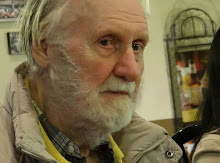In the course of this writer’s reasonably extensive global meanderings, he has all too often come into contact, casual or otherwise, with folks who hold steadfastly to certain beliefs, which we can most fittingly define as “onlyoneism”. What this piece deems as deplorable is how so many of our ultra-narrow minded clansmen feel that:
· There is only one country in the world, being the USA;
· There is only one religion, namely Christianity, under whatever denomination umbrella
applies;
· There is only one language worth speaking and writing (yes, you guessed it), English.
Our purpose here is to concentrate exclusively on the third-cited above case, dealing with pure and strict unilingualism. Despite our lack of sympathy with the other two highly prevalent attitudes, we’ll reserve further comment on such matters for another day.
We once heard the following joke, which tends to circulate among native Europeans, and expresses a mild degree of contempt in its context:
PAT: What do you call a person who can speak two languages?
MIKE: Well … er … bilingual.
PAT: Three languages?
MIKE: Trilingual.
PAT: Now then, how about a person speaks only one language?
MIKE: That’s easy. American.
Unhappily, we’ve found the impression so conveyed to be quite true.
Still, we’d be the first to admit that the ability to master a second language doesn’t lie within everybody, especially since so many born and educated in this country can’t even handle English adequately. Nevertheless, we see no excuse for the utter disdain so frequently observed even to make a stab at a foreign tongue, if just to learn the more common pleasantry expressions, and attempt to pronounce them properly.
We can readily excuse instances where such French terms as bon voyage and déjà vu have been absorbed into English and duly mispronounced. On the other hand, careless or downright intentional opposite language phrase distortion, a practice often carried out by diehard anglophones in such locations as Canada’s Quebec Province, a distinctly bilingual area, are totally unacceptable to our sensitive ears.
All we really seek in this exercise is a touch more of worldliness among our countrymen, as opposed to the overly-prominent verbal isolationism. Spanish has become a rather widely-used tongue on American soil, especially in New York City, the Southwest, California, and elsewhere. French has established a minor foothold in the Northeast. The West Coast offers a variety of Southeast Asian languages, and a person can hear literally dozens of others being spoken by just walking up or down Broadway at any hour.
What, therefore, could be so wrong with this vast band of onlyoners biting the bullet and accepting the fact that the U.S. has evolved into an intensely internationalized country, occupied by scads of respectable immigrants? Why not put forth a little effort to learn at least a smattering of their native speech, for no other reason than to be more friendly and communicative? Immigrants face a need for English proficiency solely by virtue of being here, and are sure to appreciate some reciprocation, albeit limited. It’s the thought that counts.
Furthermore, we consider the idea right neighborly.
Wednesday, September 9, 2009
Subscribe to:
Post Comments (Atom)

No comments:
Post a Comment